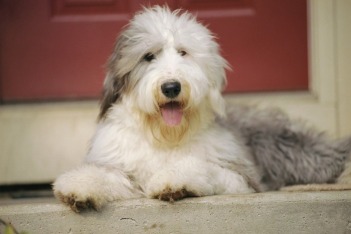DOG TRAINING TIPS

Sure a dog is quite cute. A pup can be very charming and lovable. You can teach him/her a lot of tricks such as fetching a stick or playing dead. The pup can guard your house and protect your four-year old kid. He/she can also guide your grandmother who is having problems with her eyesight. Dogs are considered as one of the smartest pets one can have. If you want to test your dogs’ limits when it comes to intellect and skills, then let a professional dog trainer do his job! However, if you will just have the right dose of patience and determination that a professional dog trainer has, you can teach your dog a lot of things and you can bring out the best of what your dog can ever be in no time. For the aspiring dog trainers, her are some tips:
a. Build a bond with your dog. Spend time with your dog and create a familial bond with it. Ensure that he/she acknowledges you as his/her keeper. Show your love and concern for your dog so he/she can establish his love and loyalty for you as well. To make sure that he/she will obey you, you should talk, play with and offer treats to him/her. Show the dog that you are his/her caretaker and master.
b. Use proper equipment. Training your dog requires proper training materials. Prior to training, be sure that you have the right set of training equipment for the dog such as the right size of dog training harness, right kind of sticks or balls to fetch, right size of seesaw to balance on, and so on. Be sure that the materials you use do not have dangerous threats to the health and the welfare of your dog.
c. Be there for your dog. Your dog needs guidance and it is your responsibility to provide him/her with such. When toilet training, be sure that you take him/her outside when you see the signs that of elimination. When you train him to do various tricks, don’t leave him with the materials alone; teach your dog how to use them properly.
d. Praise and reward. Whenever your dog does something good or when your dog responds properly to your training, give him a treat. You can take your dog to the park, lay with him/her, praise him, pat him/her, give your dog a cuddle, and/or provide dog treats such as biscuits or candies.
e. Avoid punishments. If your dog does something bad, if your dog does not respond to your training, or if your dog neglects what you have taught him, never hit your dog. You can talk to your dog, show him/her the treats that you should have given him, and then tell him that what he/she did was wrong. But, you should not hit the dog because this can only establish fear and hatred between the two of you.
f. Start the training immediately. For obedience training, toilet training, crate use or attack training, such course should start the moment the dog is under your custody. The earlier you start your training, the more receptive that your dog is.
